
Admission Information for Indigenous Students
The University of Guelph is dedicated to fostering an inclusive and supportive environment for First Nations, Inuit, and Métis students. Our commitments to reconciliation, cultural respect, and academic excellence provide Indigenous learners with a space where their voices are heard and celebrated.
We offer our gratitude to the lands on which the University of Guelph campuses are situated and the Indigenous ancestors who have inhabited these lands for centuries. We recognize that our campuses are located on the lands of the Dish with One Spoon Wampum and the traditional lands of the Haudenosaunee, Anishinaabeg and Huron Wendat. We offer our respect to these Nations and the diverse communities of First Nations, Inuit, and Métis peoples who now reside on these lands. We also recognize that our educational and research enterprises occur on Indigenous lands across Turtle Island and Mother Earth and we endeavour to ensure that our activities honour and respect Indigenous peoples and their lands.
Jump to a section:
Why Students Choose the University of Guelph
Our students and faculty exercise creativity across the physical and life sciences, arts and humanities, social sciences, business, agricultural and veterinary sciences. Explore our programs.
Support is always within reach at U of G, with resources to help students navigate university life and feel part of our community. Student Experience advisors, health and wellness services, leadership opportunities, and peer mentorship programs make it easy to find guidance, build confidence, and succeed both in and out of the classroom. Explore the Gryphon Experience.
Athletics and Recreation activities, like intramurals, and student clubs like the Indigenous Student Society help students find a community at U of G.
Our open, friendly campus is characterized by green lawns, gardens, and a blend of modern and traditional architecture. Our 400-acre Arboretum features plant collections, gardens, walking trails, natural woodlands, wetlands, and meadows.
Scholarships and Funding: In 2024 - 2025, 7,870 U of G students received $21.96 million CAD in awards, including $10.8 million CAD in need-based aid! Access scholarships and funding opportunities on the financial services website.
Our University-wide Indigenous Initiatives Strategy highlights our ongoing commitment to this work.
Hear from your peers
Indigenous Student Centre
The Indigenous Student Centre (ISC) offers events, advising support, transition programs, and a safer space on campus for self-identified First Nations, Inuit, and Métis students to gather.
Helpful Links

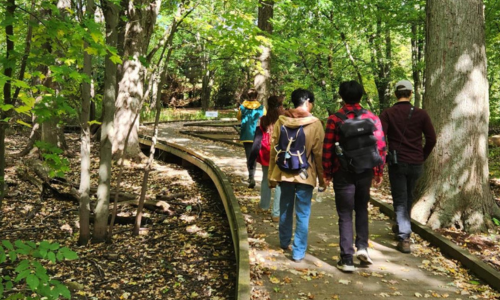
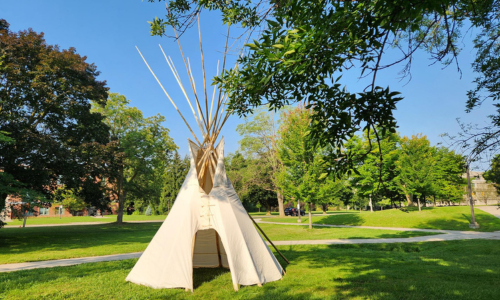
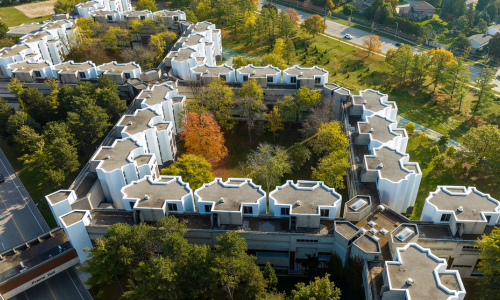
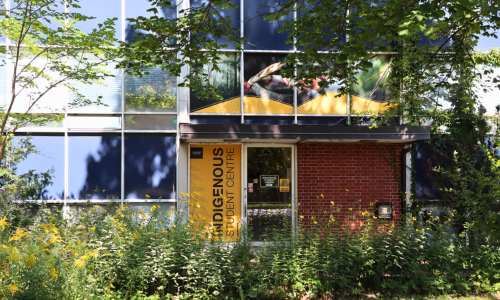
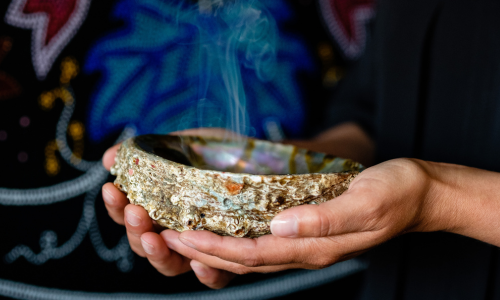
Initiatives and News
In the News:
Frequently Asked Questions
Any First Nations, Inuit, and/or Métis student can self-declare on their application or at any point during their studies at the University of Guelph to receive information about dedicated supports for Indigenous students. For certain opportunities, students may be asked to confirm their identity through the University of Guelph's Indigenous Identity Confirmation process.
Visit the Undergraduate Admission website for the most up-to-date admissions information. The Contact Us page lists helpful phone numbers and email addresses.
A number of supports are available to First Nations, Inuit, and Métis students including advising, social and cultural events, and support programming, such as Visiting Elders and sharing circles. Visit our website for more information about accessing these services.
The best place to get housing information is on the Student Housing website. There you can explore our housing communities, learn how to apply and get information about off-campus housing.
Visit the Undergraduate Admissions website for answers to other common admission questions.

